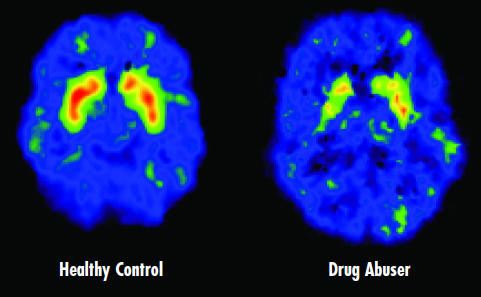This Is Your Kid’s Brain on Drugs
SafeLaunch Teaches Parents How to Prevent Adolescent Addiction

Adolescent substance abuse can be a tricky, touchy subject. Conversations about intervention and treatment often turn into blame game debates about funding gaps, the war on drugs, and a permissive American culture. But for Janet Rowse and SafeLaunch — the educational organization she co-founded and runs — the issue is relatively simple. “It’s really all about the brain,” she said. “It’s math and science.”
It’s the mission of Rowse and SafeLaunch to teach parents about the intersection of early drug use and addiction struggles later in life. People who experiment with addictive substances before age 18 — be it alcohol, tobacco, marijuana, prescription pills, or any other narcotic — are six times more likely to develop abuse problems than those who didn’t start using until they were 21 or older, Rowse said. Statistically, six out of ten 14-year-olds are likely to become dependent on drugs or alcohol when they’re exposed.

Rowse explained a young brain is a vulnerable brain, as it hasn’t fully formed the frontal lobes that act as a reasoning center and manage impulse control. Yet it’s hardwired from the start to seek social acceptance in even questionable circumstances, such as a circle of friends passing around a joint. “It’s not that kids are making bad decisions,” Rowse said. “They’re still just figuring out how to make right decisions.”
Rowse has two grown children who graduated their way through Santa Barbara’s school system. As an interested and involved parent, she noted with alarm that little progress had been made over the years to curb adolescent substance abuse. It wasn’t from a lack of trying, she said. “School administrators are just spread so thin.” There are approximately two million U.S. high school students who meet the criteria for an alcohol or drug use disorder, but only about 100,000 have received treatment in the past year. Rowse has also experienced personal loss from addiction in her extended family.
So Rowse, who previously served on the board of the Council on Alcohol and Drug Abuse, decided to act. She partnered with friend Ron Cuff, a retired Navy pilot, hence the name SafeLaunch, and started organizing awareness-raising events about primary prevention. The Wind Beneath Our Wings program, a flying memorial to young people lost to addiction, reaches a national audience. “It’s an honor to tell their stories,” Rowse said. Here in Santa Barbara, SafeLaunch hosts art competitions as well as informational talks. This Monday at 5:30 p.m., neuroscience researcher D.C. McGuire will speak at Santa Barbara Junior High School’s Marjorie Luke Theatre about cognition and behavior, and how parents can better understand what makes their teens tick. The event, which is free, is being co-presented by the Santa Barbara Unified School District. Adult attendees will also have a chance to fly a paper airplane to win $25,000 in cash.
“All we’re trying to do is raise the volume and consistency of the message,” Rowse said. It’s imperative parents learn about the risks that come with even dabbling in drugs, she explained, and practice ways to speak to their children so they also appreciate what can result from seemingly harmless fun. “It’s a tough balance between protection and autonomy,” said Rowse of raising a child. “But to not act is not an option.”
For more information, visit safelaunch.org.



